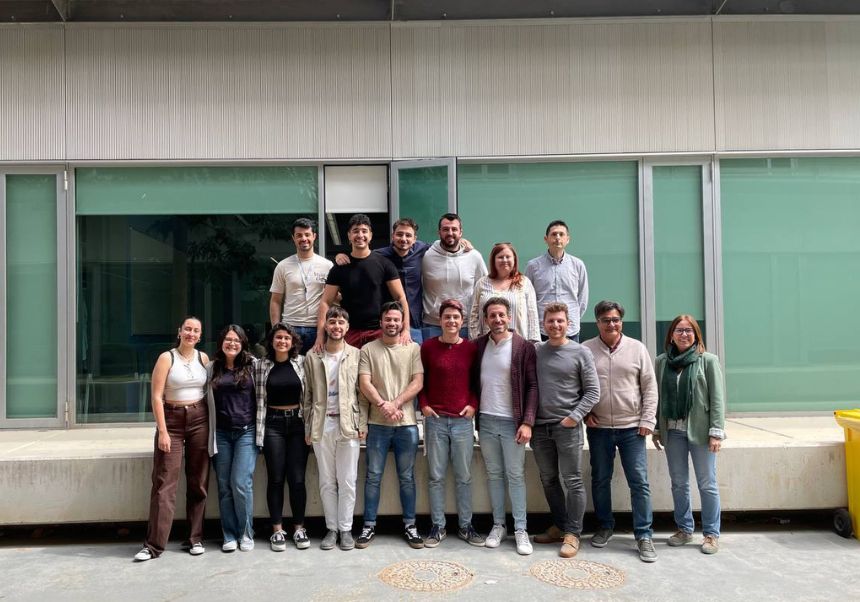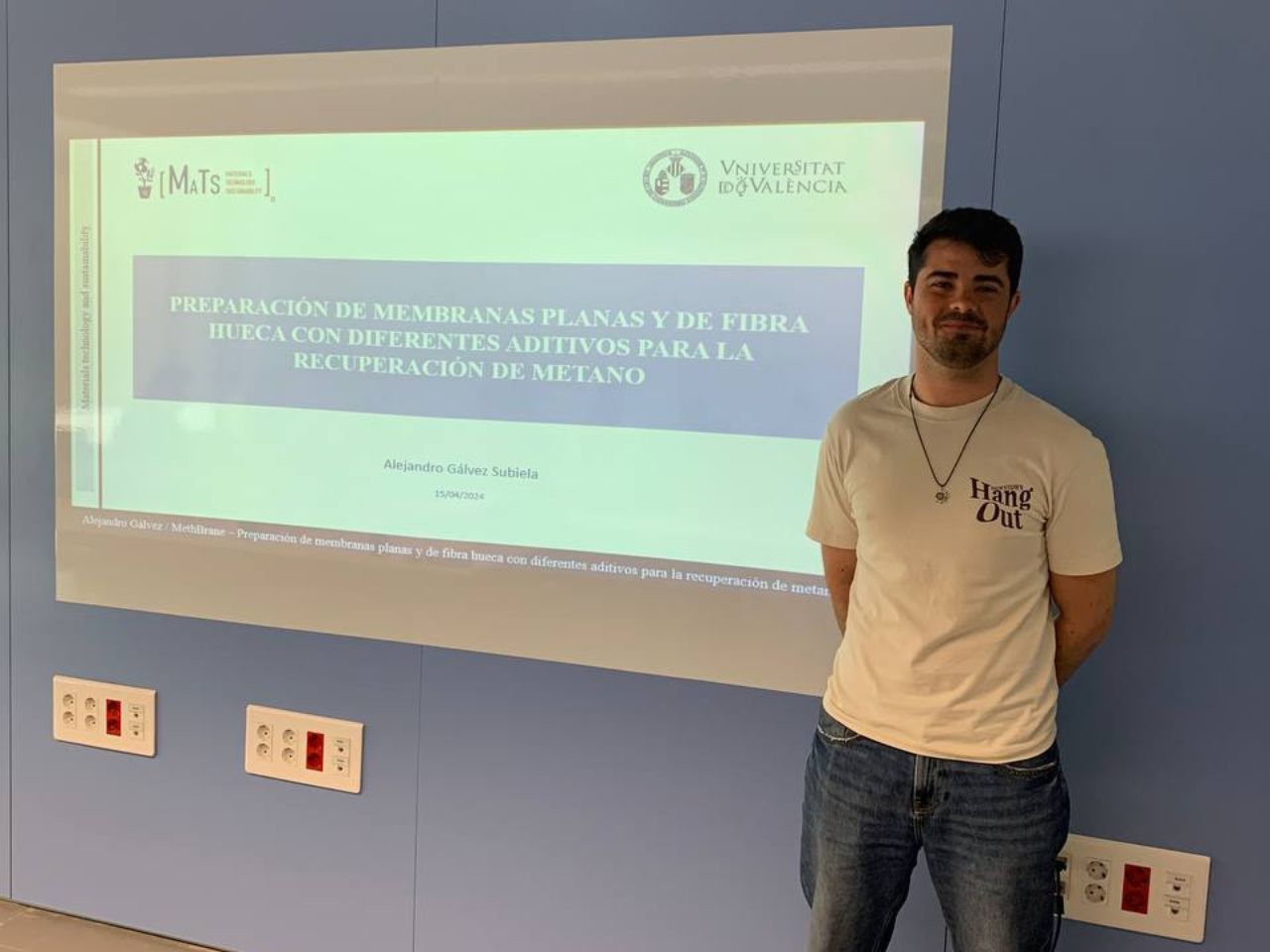
MATS holds its fourth Seminar on "Design of Polymeric membranes for environmental technologies".
The MATS team is progressing in the development of polymeric membranes by means of optimisation of synthesis conditions in plain and hollow fibres, and functionalisation through different technologies of chemical modification and supported liquid membranes for decarbonisation processes of liquid and gaseous effluents.
These investigations are developed within the framework of the projects MethBrane and Carbonbrane, both funded by the Spanish State Research Agency. In this way, in the seminar "IV. Development of PVDF membranes in flat-sheet and hollow fibre configurations and supported liquid membranes. Exploring the membrane absorption for biogas upgrading” that took place on 15/04/2024, the various researchers involved in these projects have presented the progress made in these investigations:
The doctorate student Gorka Marko has presented his work “Estudio de la modificación superficial de membranas líquidas soportadas basadas en PVDF para aplicaciones de descarbonización”. It contains the development of methodologies for the preparation of supported liquid membranes with deep eutectic solvents and ionic liquids along with superficial functionalisation of fluoroalkyls. Results showed a potential improvement in the recovery of dissolved methane and in the permeability of carbon dioxide.
The also doctorate student Félix Montero presented his work “PVDF Electrospun Nanofiber Membrane Integrity Enhancement for CH4 Recovery Membrane Contactors”. In it, the syntax process of PVDF flat sheet membranes is optimised with electrospinning, and the subsequent process of pressing has been optimised for improving its structural integrity while maintaining the porosity of these membranes.
Alejandro Galvéz, recruiter researcher of the team, also presented his work “Preparación de membranas planas y de fibra hueca con diferentes aditivos para la recuperación de metano”. In this work he has developed both flat sheet and hollow fibre configurations with the NIPS method, using green solvents. Another key aspect is the succesful aplication of deep eutectic solvents as pore formers.
On the other hand, within the framework of the technologic transfer contract with the firm GLOBAL OMNIUM, MEDIO AMBIENTE S.L. that the team is currently developing, the researcher María Castro also presented the work “Enriquecimiento de biogás a biometano con contactores poliméricos de membrana de fibra hueca usando sobrenadante como absorbente” in which she displayed the improvements recorded in the process in the laboratory. From this work, we can highlight the success of the valorisation of the supernatant of anaerobic sludge as an absorbent of carbon dioxide for the production of biomethane.







